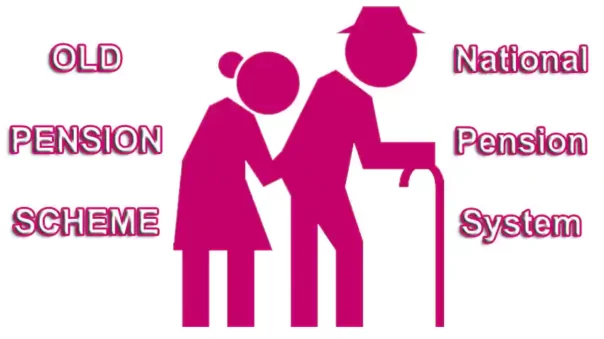
Following the Bharatiya Janata Party's successful takeover of Rajasthan and Chhattisgarh from the Congress, the fervent debate surrounding the National Pension System (NPS) versus the Old Pension Scheme (OPS) seems poised to lose traction. It appears that the central government may not rush into altering the NPS framework.
Rajasthan became the initial state to revert to OPS, followed by Chhattisgarh, Jharkhand, Punjab, and Himachal Pradesh. The Gehlot government's decision to reintroduce OPS was touted as a potential game-changer. Subsequently, this became a pivotal point for the Congress in Himachal Pradesh's elections. After securing victory, the Congress administration in the hill state made reinstating OPS one of its cabinet's key decisions. A similar promise appeared influential in Karnataka, although the state government is yet to fulfil this pledge post-election.
Numerous economists, including the RBI, have voiced strong opposition to reinstating OPS, citing concerns that this move could disrupt the fiscal equilibrium of the states. OPS involves a defined benefit structure where the government shoulders the entire financial burden. Conversely, NPS operates as a defined contribution system, relying on contributions from employees and the government to fund pension expenses. NPS was implemented for Central Government employees (excluding armed forces) from January 1, 2004, and nearly all states, barring West Bengal and Tamil Nadu, adopted the NPS.
By the end of November 2022, the cumulative count of state government employees subscribing to NPS had reached approximately 5 million, contributing a total of ₹2.5 lakh crore to the NPS corpus.
A recent commentary in the RBI's bulletin cautioned against states reverting to OPS, highlighting that such a move could lead to substantial fiscal strain in the medium to long term. The article projected that the cumulative fiscal burden of OPS could be 4.5 times higher than that of the New Pension Scheme (NPS), with an additional burden equivalent to 0.9% of GDP annually by 2060. Consequently, any short-term reduction in pension expenditure could be overshadowed by a significant surge in future unfunded pension liabilities.
Currently, a committee headed by Finance Secretary T V Somnathan at the central government level is reassessing NPS and has been tasked with evaluating if any alterations are necessary within the existing framework applicable to government employees. The committee's recommendations will consider fiscal implications and the impact on the overall budgetary space, emphasizing the need for fiscal prudence to safeguard the interests of the general populace. When queried about a timeline, Somnathan indicated that discussions are ongoing.
Meanwhile, Telangana, Rajasthan, Madhya Pradesh, Chhattisgarh, and Mizoram—all with limited fiscal leeway—face constraints on implementing populist measures. As per the FY24 budget estimates, their fiscal deficits range from 2.9% to 4.2% of GSDP, while all these states exceed the 20% debt-GSDP benchmark stipulated by the 2018 FRBM amendment. Rajasthan and Mizoram have debt-GSDP ratios surpassing 30% (37.3% and 41.2%, respectively).

 🕑 03 May, 2024 12:32 PM
🕑 03 May, 2024 12:32 PM
Finance Ministry notifies LIC’s 17% wage revision
 🕑 03 May, 2024 10:04 AM
🕑 03 May, 2024 10:04 AM
Validity of CGHS empanelled Health Care Organizations (HCO’s) extended
 🕑 29 Apr, 2024 09:55 PM
🕑 29 Apr, 2024 09:55 PM
DoPT Clarification on increase in allowances by 25%
 🕑 24 Apr, 2024 09:17 AM
🕑 24 Apr, 2024 09:17 AM
DoPT forwards 8th Pay Commission demand by IRTSA forwarded to Fin Min
 🕑 23 Apr, 2024 10:01 AM
🕑 23 Apr, 2024 10:01 AM
CGDA: Revision of rates of Allowances with DA rates increased to 50%
 🕑 22 Apr, 2024 12:59 PM
🕑 22 Apr, 2024 12:59 PM
CBDT: on DoPT order on regularization of Casual Workers
 🕑 21 Apr, 2024 09:54 PM
🕑 21 Apr, 2024 09:54 PM
DoPT Consolidated Instructions on SC, ST, OBC, PwD & EWS reservation
 🕑 18 Apr, 2024 11:51 AM
🕑 18 Apr, 2024 11:51 AM
Timeline extended for CGHS Beneficiary ID - ABHA ID linking
 🕑 10 Apr, 2024 08:35 AM
🕑 10 Apr, 2024 08:35 AM
Kendriya Vidyalaya Sangathan Admission Guidelines 2024-2025
 🕑 05 Apr, 2024 01:23 PM
🕑 05 Apr, 2024 01:23 PM
Kendriya Vidyalaya Balvatika Admission Schedule - 2024-25
 🕑 02 Apr, 2024 09:25 AM
🕑 02 Apr, 2024 09:25 AM
Kendriya Vidyalaya Admissions Open for 2024-25: Key Dates & Appln Process
 🕑 01 Apr, 2024 09:23 AM
🕑 01 Apr, 2024 09:23 AM
Kendriya Vidyalaya (KV) schools where Balvatika is functioning
 🕑 14 Mar, 2024 02:07 PM
🕑 14 Mar, 2024 02:07 PM
Govt bans 18 vulgar 18 OTT. See the list here
 🕑 08 Mar, 2024 01:49 PM
🕑 08 Mar, 2024 01:49 PM
Pension Scheme Gains Traction Across States, Despite Central Hurdles
 🕑 20 Feb, 2024 11:17 PM
🕑 20 Feb, 2024 11:17 PM
CGHS rate for general surgery applicable from February 1, 2024
 🕑 08 Feb, 2024 10:19 AM
🕑 08 Feb, 2024 10:19 AM
No loan interst change as RBI maintains repo rate at 6.50% for the 6th time